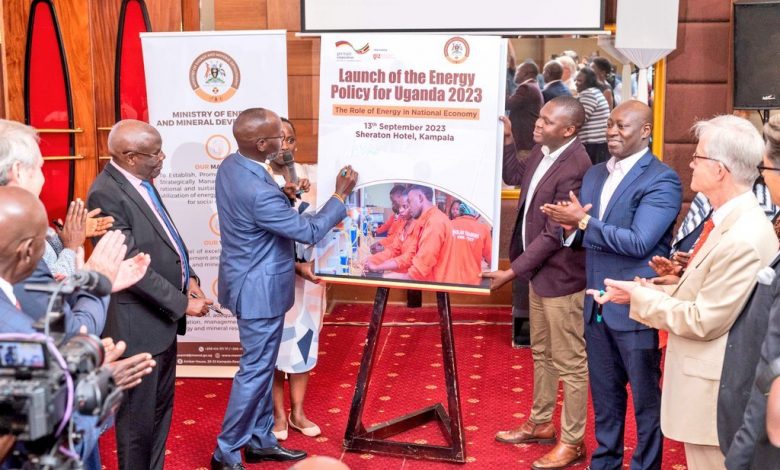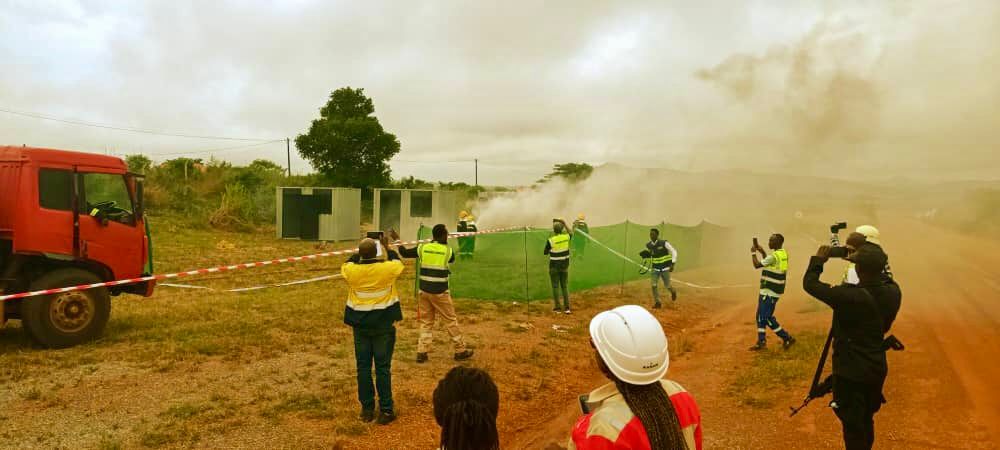German ambassador challenges Uganda’s idea of building a nuclear power plant
As a precedent, Schauer said Germany decided to destroy its nuclear power plants as they were a potential threat to the population. He cites the Fukushima Daiichi nuclear power plant accident that happened on March 11, 2011.

Uganda’s idea of constructing a nuclear power plant has been challenged by Germany’s Ambassador to Uganda Matthias Schauer. He said the idea does not fit in the Energy Policy for Uganda 2023, which was launched on Wednesday in Kampala.
As a precedent, Schauer said Germany decided to destroy its nuclear power plants as they were a potential threat to the population. He cites the Fukushima Daiichi nuclear power plant accident that happened on March 11, 2011.
“Germany has decided to shut down its nuclear power plants because they simply remain a potential threat to the population as we have last seen in Fukushima and nobody has yet found a solution for dealing with the highly toxic waste,” he noted.
Despite Germany destroying its nuclear power plants, Schauer says nobody has ever found a solution for destroying or disposing of this highly nuclear toxic waste along with that in Fukushima.
Referring to the price of the nuclear power plant, the ambassador noted that it’s expensive and a waste of funds and resources to have one, as each costs between 15 to 20 billion US dollars.
Speaking about other resources Germany’s ambassador referred to the use of bio-mass / Charcoal for cooking, which he noted it has a very high negative impact on the environment especially on forests.
However, he was quick to ask the government to come up with a quick solution to fix this, despite banning the use of charcoal is still quite a challenge as many Ugandans still depend on it for cooking.
“The current situation calls for a much stronger move to clean up cooking energy such as using bio-gas and electricity cooking, or use of cooking stoves as an interim solution,” he added.
The ambassador cited a challenge where governments get stuck between protecting the environment and industrial development, saying he would support environmental protection more since it offers more business opportunities.
During the launch of the new Energy Policy for Uganda 2023, the Ambassador also applauded the Ministry of Energy and Mineral Development, saying that the policy is not only a national achievement but also a strong move towards fulfilling Uganda’s regional and international commitments.
The State Minister of Energy and Mineral Development Okasai Sidronius Opolot, highlighted that universal access to electricity for all Ugandans is one of the key principles of the Energy Policy for Uganda 2023.
According to Okasai, despite the government’s continued extension of electricity to different parts of the country, a lot of citizens still lack basic energy services such as electricity and clean cooking. Hence the policy has come to address such gaps, with the focus on rural and other areas to be connected to the electricity grid by 2040.
He notes that the government with this new Energy Policy for 2023 aims at powering every household and all sectors in the country, something which will unlock opportunities for all Ugandans.
The Energy Policy for Uganda 2023 was on Wednesday officially launched by Hamson Obua, the Government Chief Whip, on behalf of the Prime Minister, Robbinah Nabbanja.







